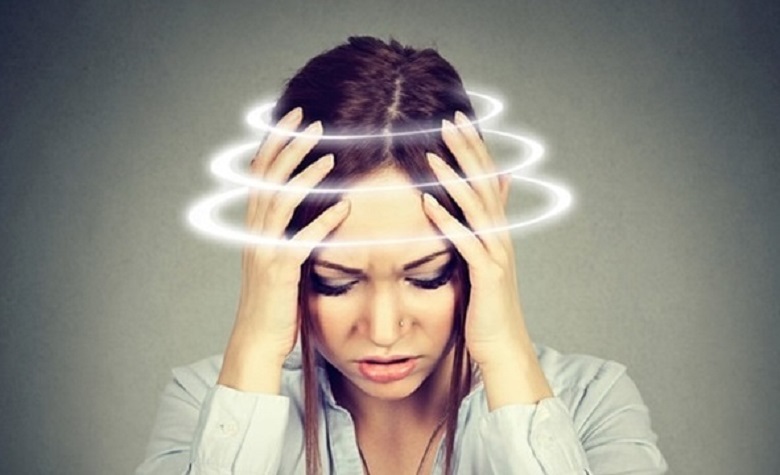Vertigo is a symptom that can be caused by a number of health problems such as vestibular problems like BPPV, inner ear disorders like Meniere’s disease, neck or head injuries, and more. It refers to experiencing a false sense of motion with patients often feeling as if the world around them is spinning.
In order to provide effective vertigo treatment, it is important to find the cause of vertigo. However, before finding the cause, it is important to identify if the patient is actually experiencing vertigo or not.
In this blog, we’re going to take a look at some of the most important and early signs of vertigo.
What causes vertigo?
The most common causes of vertigo involve problems with the inner ear in patients. Some of the common health conditions that can cause vertigo include:
- BPPV (benign paroxysmal positional vertigo):- BPPV is a health condition where very small calcium particles get stuck in the canals of the inner ear. This causes the brain to misinterpret the signals sent regarding head and body movements.
- Meniere’s disease: – Meniere’s disease is an inner ear problem that is usually caused by fluid buildup and the change of air pressure in the inner ear.
- Vestibular neuritis / labyrinthitis- An inner ear problem related to infection in the ear.
Other causes of vertigo include injuries to the neck or head, stroke or tumors, medications, and migration headaches. Vertigo treatment will vary largely depending on the cause of vertigo.
Top 10 Vertigo Signs
Now that we have a basic idea of what vertigo is and the common causes of vertigo, let’s take a look at some of the early signs of vertigo.
Do note that the following vertigo signs are not exhaustive and universally applicable. It is best to check with your ENT doctor if you’re experiencing even mild sensations of vertigo.
- The most prominent early sign of vertigo is balance problems. The patient experiencing vertigo usually experiences a spinning sensation and feels dizzy. It is also common for patients to falsely experience as if the room around them is spinning.
Balance problems can also be caused by other health problems but almost every patient experiencing vertigo will experience balance problems. This is often due to the malfunctioning of the vestibular system in our body which regulates balance. - When it comes to vertigo symptoms, lightheadedness is another common sensation. Feeling lightheadedness and dizzy are common when the patient is experiencing vertigo.
- Another one of the early signs of vertigo is experiencing a sense of motion sickness. It feels pretty similar to nausea that one can experience after riding in a roller coaster or a boat.
Feeling motion sickness is usually accompanied by dizziness and the false sensation of motion. All these symptoms are interrelated as they are signs that something is wrong with the vestibular system in the body
- Nausea is another common sign of vertigo. Most patients experiencing vertigo also feel a sense of nausea and discomfort. The severity of nausea will depend on a case-by-case basis and can range from mild to severe.
- Vomiting usually follows nausea in patients and it is another sign of vertigo. The severity of vomiting will also vary depending on the patient and the particular circumstances of the health problems.
- Vertigo can also cause the patient to hear a ringing in the ear or tinnitus. Tinnitus is usually caused by problems regarding the inner ear and a number of health conditions that can cause vertigo also cause the patient to experience tinnitus.
- It is also very common for patients a feeling of fullness in the ear. It is also part of the vertigo symptoms that can be caused due to health problems with the inner ear.
- Headaches are also in the list of vertigo signs. However, it is important to note that headaches can be caused by a lot of different health conditions and might be unrelated to vertigo.
- Nystagmus, a health conditon in which the eyes move uncontrollably, usually from side to side can also be a sign of vertigo in patients.
- Other abnormal eye movements are also part of the early signs of vertigo. However, they can also be an indication of a much more serious health problem.
Vertigo Treatment
As mentioned in this blog, the treatment for vertigo will depend on the cause of the vertigo. In a large number of cases, vertigo can also go away on its own as the brain is very fast at adapting to inner ear changes.
In some cases, further treatment might be involved. One of the most effective methods of treatment is vestibular rehabilitation therapy.
Vestibular rehabilitation therapy is a kind of therapy that is aimed at improving the strength of our vestibular system. Since most health problems causing vertigo affects the vestibular system, vestibular rehabilitation therapy can help a lot in dealing with vertigo.
Other forms of treatment include canalith repositioning maneuvers, a series of exercises that can help treat BPPV. Medication and surgery, in some extreme cases, might be needed for treating vertigo.
Lastly, if vertigo is caused by really serious health conditions such as neck or brain injury or tumours, treatment of the underlying condition can help alleviate the symptom of vertigo.
Vertigo – a serious symptom
Vertigo might not be a health condition in itself but it is a serious symptom that can indicate health problems.
If you experience any of the vertigo signs listed in this blog, you should consult with your ENT specialist to ensure the best health for your future.




